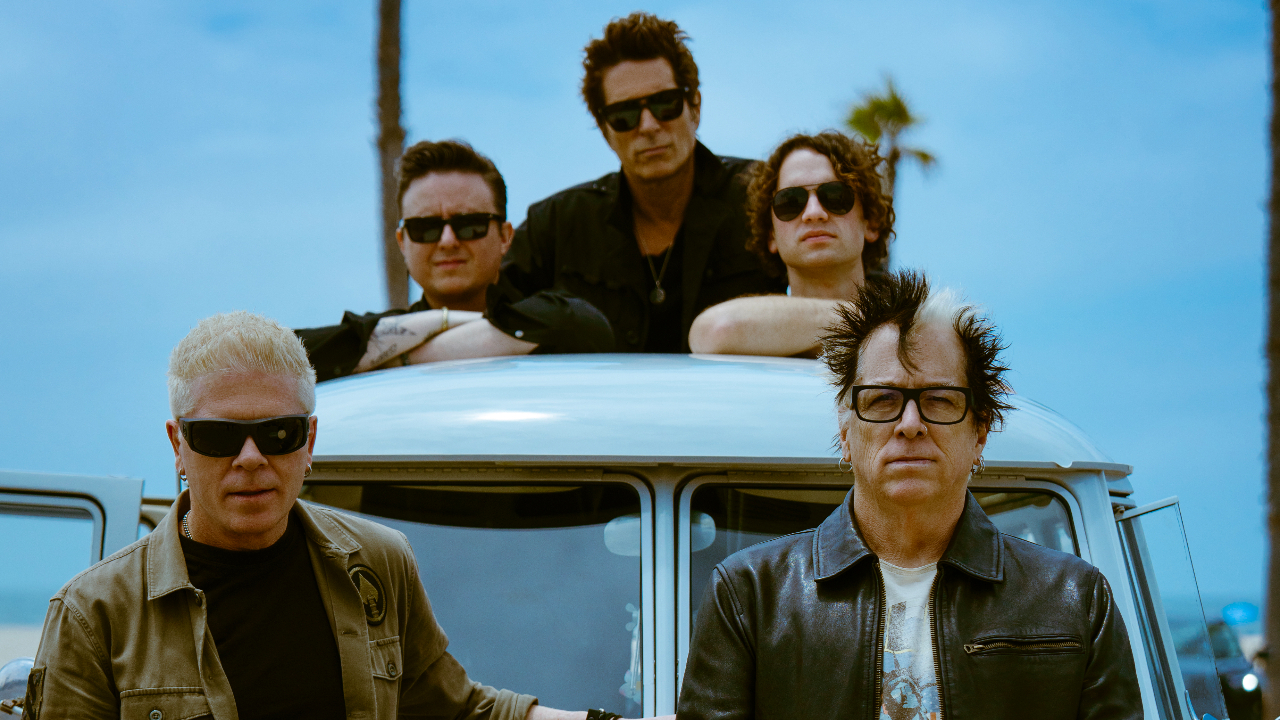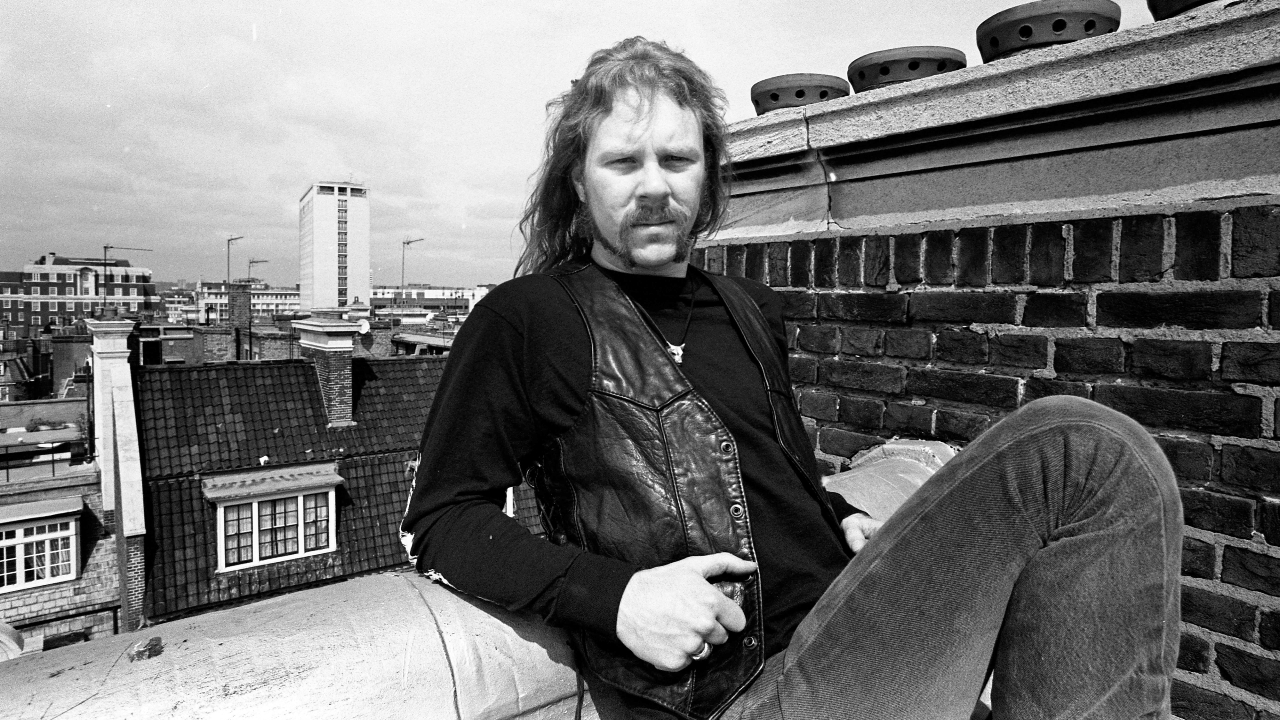Every The Offspring album ranked from worst to best
From their self-titled debut album to to most recent offering Supercharged, this is every Offspring LP in reverse order of greatness

Alongside fellow Californians Green Day, Rancid and NOFX, The Offspring helped push punk rock into the mainstream in the mid-90s, with frontman Dexter Holland and guitarist Noodles emerging as two of the scene's most articulate spokesmen and iconic figureheads.
Smashing sales records and penning chart-topping hits, the Orange County pop punks will never be considered 'cool' by sneering mainstream music critics, but they've endured as one of modern rock's most unlikely success stories. Here, then, is our rundown of the band's studio albums, from the expendable to the essential, from their self-titled debut all the way to 2024's thoroughly solid Supercharged.

11. Days Go By (2012)
You can trust Louder
One of the curses of being a punk band who achieve longevity is the struggle to offer something new with each album, when the formula you’ve perfected is a relatively simple one. Days Go By isn’t so much a bad album as an anonymous one.
The Offspring’s second collaboration with super-producer Bob Rock can’t decide how much it wants to adopt the more mainstream sound that has served the likes of Rise Against well in recent years. A glossy re-recording of classic track Dirty Magic only adds to the vibe of a band struggling to change gears.
10. Conspiracy of One (2000)
The beginning of the end for the The Offspring’s peak commercial period, Conspiracy of One had no trouble finding an audience but feels oddly indistinguishable in hindsight. This isn’t helped by Original Prankster, a Top 10 single in the UK, sounding suspiciously like a second retread of a formula already employed to superior effect, initially on Come Out and Play, then on Pretty Fly (For A White Guy).
Despite boasting solid singles (OP being followed by Want You Bad and Million Miles Away) and no lack of fire powering Come Out Swinging and Special Delivery, there’s still plenty of filler in its 37 minutes. It would be the last album to feature drummer Ron Welty, who joined the band as a 16-year-old in 1987.
9. Supercharged (2024)
The Offspring have understood the assignment for a while now, so dutifully lean into what they know on their 11th studio album. From opening track Looking Out For #1’s goofy vocal hook to OK, But This Is The Last Time sounding suspiciously like their version of a power ballad, this is colouring within the lines from a band whose palette has defined the pop punk genre for more than three decades now. Pleasingly, they turn the screw and turn back the clock with The Fall Guy and Truth In Fiction, while Come To Brazil is proof they can update their wisecracking humour for the internet comments du jour.
8. Splinter (2003)
An uneven transition into what would become recognisable as The Offspring’s slower, late-period sound, Splinter has aged better than it might have done. The dark-hued opening stomp of Neocon suggests that its creators’ focus has been sharpened by early 2000's political discord, while album highlight (Can't Get My) Head Around You is a welcome reminder of what it sounds like when Dexter Holland lets the existential despair spill out.
On the downside, the parping electro-pop of Hit That is as grating as anything the SoCal quartet have released, while the self-consciously quirky The Worst Hangover Ever is another rewrite of Why Don't You Get A Job?, itself not one of the band's more original ideas.
7. The Offspring (1989)
The band’s self-titled debut did little to distinguish The Offspring from other West Coast punks at the time, but it’s not without merit. Though a muddy sound and strangulated riffs mean that this sounds exactly like a band you’d watch support Bad Religion or the Dead Kennedys 30 years ago, dig a little deeper and the potential the quartet would realise later is evident.
Out on Patrol and Tehran jangle with the anti-authoritarian energy of their best early tracks, while Crossroads is both impressively unhurried and noisily sure of itself.
6. Let The Bad Times Roll (2021)
Nine years on from Days Go By, The Offspring re-teamed with Bob Rock for the sparky Let The Bad Times Roll. Recorded amid line-up changes and the small matter of a global pandemic, it’s to their credit that this sounds like a better realised version of its predecessor.
True, it’s highly polished, mid-paced stuff, but this is also the sound of a band growing into middle-age without losing their identity. The horn section thrown into We Never Have Sex Anymore is also proof, were it needed, that Dexter Holland and co. haven’t lost their sense of fun.
5. Rise and Fall, Rage and Grace (2008)
The title perfectly captures the spirit of what feels like a band taking stock and deciding to shake themselves out of old routines. While Rise and Fall, Rage and Grace doesn’t stint on breakneck delivery (Trust in You, Hammerhead), there’s an ebb and flow to this collection of songs that recalls The Offspring’s best work.
Alongside the sensitively-handled Kristy, Are You Doing Okay?, a song written by Dexter Holland as an apology to a childhood friend who suffered sexual abuse, the band slow things down (A Lot Like Me) and strip things back (Fix You) in a manner that won’t be for everyone, but does offer the shock of the new. And fans of bonus tracks could do worse than hunt down the swaggering cover of D.I.’s The O.C. Life, released on the Japanese edition of the album.
4. Americana (1998)
It might be difficult not to view The Offspring’s second most successful album as a big-budget retune of the record-breaking Smash, but worldwide sales north of 10 million bear testament to the fact that Americana finds Dexter Holland's band in peak form.
Love it or hate it, Pretty Fly (for a White Guy) topped singles charts around the world with its tongue-in-cheek send-up of white suburbanites co-opting black culture, while Why Don't You Get a Job? pulled off a cheeky smash-and-grab of the melody from The Beatles’ Ob-La-Di, Ob-La-Da without incurring legal action from Apple Corps. And while it may not be the group's most original set, Americana did manage to deliver a sugar-coated reality check to anyone prepared to actually listen to Holland's often smarter and more incisive than you imagined lyrics.
3. Ixnay on the Hombre (1997)
Sandwiched between the huge success stories released either side of it, Ixnay On The Hombre would be an easy album to forget if it wasn't so damn good. Smash may have propelled the Garden Grove, California punks into a new reality, but at no point on its follow-up do the quartet sound like they're struggling with - or even aware of - their heightened profile and the additional pressures their new status might attract,
At various points, The Offspring might sound slower, grimier or snottier than before, but they never sound like they're second-guessing their audience or their art. Me & My Old Lady is a gleefully unclean love song, Cool to Hate toys with the nihilism that comes from feeling like you don’t fit in anywhere or with anyone and the soaring Gone Away isn’t afraid to grieve in public. Making 'Smash 2.0' might have guaranteed a few million more sales, but Ixnay... was early evidence that The Offspring were no-one's puppets.
2. Ignition (1992)
Before they bowled through MTV and radio playlists around the world for the first time, The Offspring were (not so) quietly establishing themselves as smart, sharp and profane purveyors of melodic punk rock. Ignition sparks into life with what sounds like the last confession of a sex addict (Session), going on to shift nimbly between irresistible introspection (Kick Him When He’s Down) and grinding missives about police violence that sadly haven’t aged a day (L.A.P.D.).
It’s a world away from what they’d become, but the grungey balladry of Dirty Magic was an early clue that they were capable of much more.
1. Smash (1994)
In 1994, the music industry – and most musicians – did not expect a bunch of upstarts signed to a small punk label to have a decent stab at taking over the world. Released by Epitaph on April 8 that year, the same day on which Kurt Cobain was found dead at his Seattle home, Smash did so by combining the infectious energy of pop-punk, the angst of alternative rock and fistfuls of irresistible hooks, eventually becoming one of the best-selling albums ever released on an independent label.
MTV hits Self Esteem and Come Out And Play remain punk-rock party starters, while the title track and Gotta Get Away waste no time staring down detractors and into the void, respectively. Green Day and Rancid may have been cooler in the eyes of critics, but in connecting with a new generation of disaffected teens, Smash helped make the post-Cobain world a slightly more anarchic, carefree place.
The latest news, features and interviews direct to your inbox, from the global home of alternative music.
A long-time contributor to Kerrang! and feature writer for Noisey, Fightland and more, punk rock lifer Alistair Lawrence wrote the acclaimed Abbey Road: The Best Studio in the World in 2012. Hopefully Ridley Scott will forgive him for accidentally blanking him in one of the studio’s hallways, should they ever meet again.






